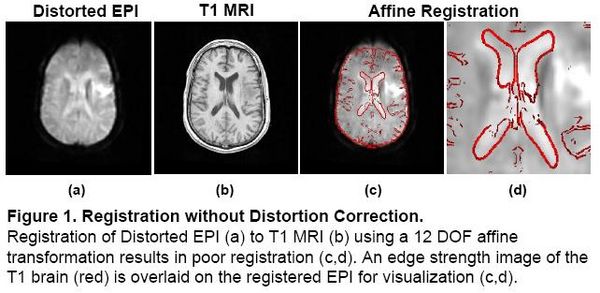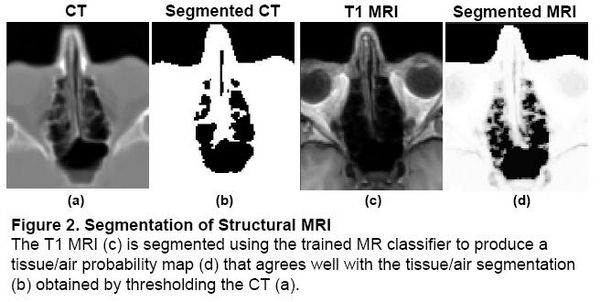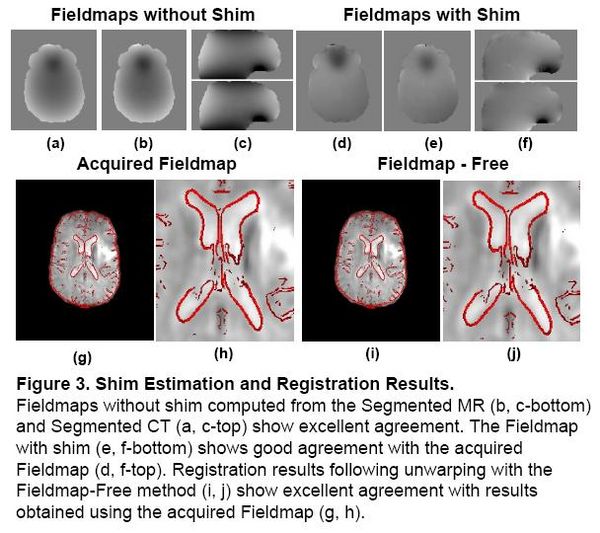Difference between revisions of "Projects:FieldmapFreeDistortionCorrection"
| Line 25: | Line 25: | ||
|[[Image:Igt poster fig3.jpg|600px|]] | |[[Image:Igt poster fig3.jpg|600px|]] | ||
|} | |} | ||
| + | |||
| + | = Key Investigators = | ||
| + | |||
| + | Clare Poynton, Mark Jenkinson, Alex Golby, William (Sandy) Wells | ||
| + | |||
| + | [1] Cusack et al, NeuroImage 18:127-142. 2003. | ||
| + | [2] Jenkinson et al, Magn Reson Med 52:471-477. 2004. | ||
| + | [3] Koch et al, Phys Med Biol. 51(24):6381-402. 2006. | ||
| + | [4] Poynton et al, MICCAI. 271-279, 2008. | ||
Revision as of 20:04, 14 May 2009
Home < Projects:FieldmapFreeDistortionCorrectionContents
Registration without Correction
Localization of functional information relies on accurate registration of EPI and structural MR, which can be difficult due to EPI distortion caused by B0 field inhomogeneity. Correcting distortion using acquired Fieldmaps has been shown to improve registration [1], but Fieldmaps may not be available or may not be applicable if significant motion is present in the EPI, resulting in sub-optimal registration.

|
Problem 1: Segmentation
Magnetic field models exist to compute a Fieldmap from a Tissue/Air segmentation [2,3], but segmenting structural MR is difficult due to the similar intensities of bone and air. In the Fieldmap-Free method [4], T1 MRI was segmented using a trained classifier that computes the probability of tissue given MR intensity. CT data was used for training and validation only, allowing the trained classifier to be applied to data sets without CT.

|
Problem 2: Shim Estimation
Existing magnetic field models do not account for the shim fields that reduce B0 field inhomogeniety prior to acquisition. Without this information, accurate unwarping is not possible. In this Method, a Fieldmap (without shim) was computed from the Segmented MR using the field model in [2]. Missing Shim Fields were modeled by spherical harmonic basis functions. Registration was used to search over shim parameters until optimal agreement between the EPI and structural MR was obtained.

|
Key Investigators
Clare Poynton, Mark Jenkinson, Alex Golby, William (Sandy) Wells
[1] Cusack et al, NeuroImage 18:127-142. 2003. [2] Jenkinson et al, Magn Reson Med 52:471-477. 2004. [3] Koch et al, Phys Med Biol. 51(24):6381-402. 2006. [4] Poynton et al, MICCAI. 271-279, 2008.